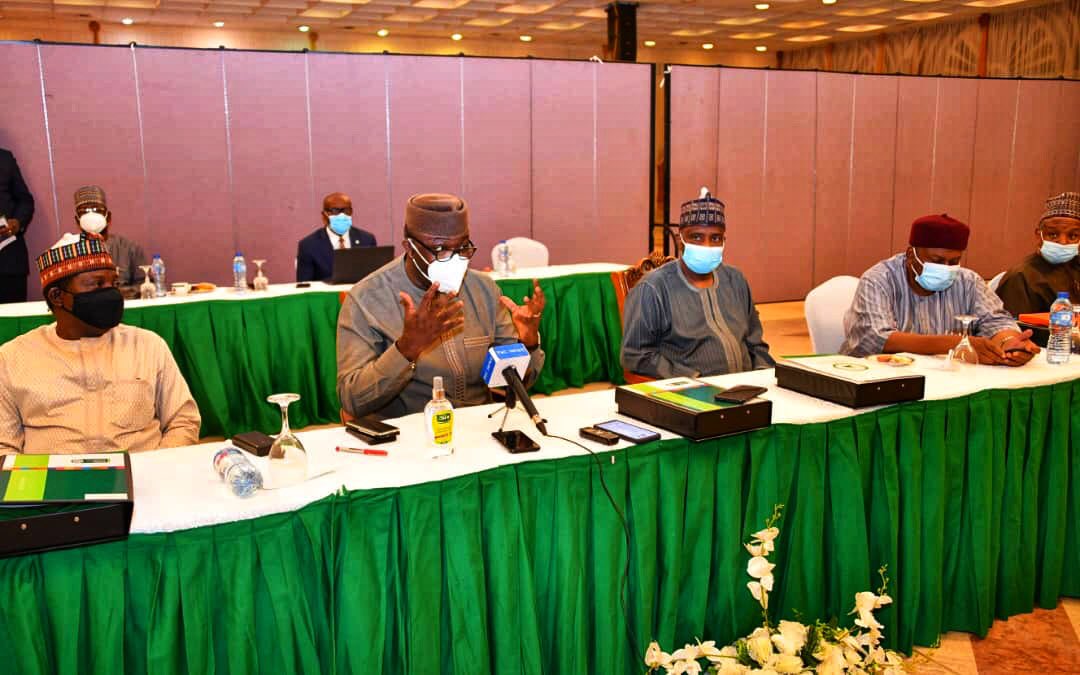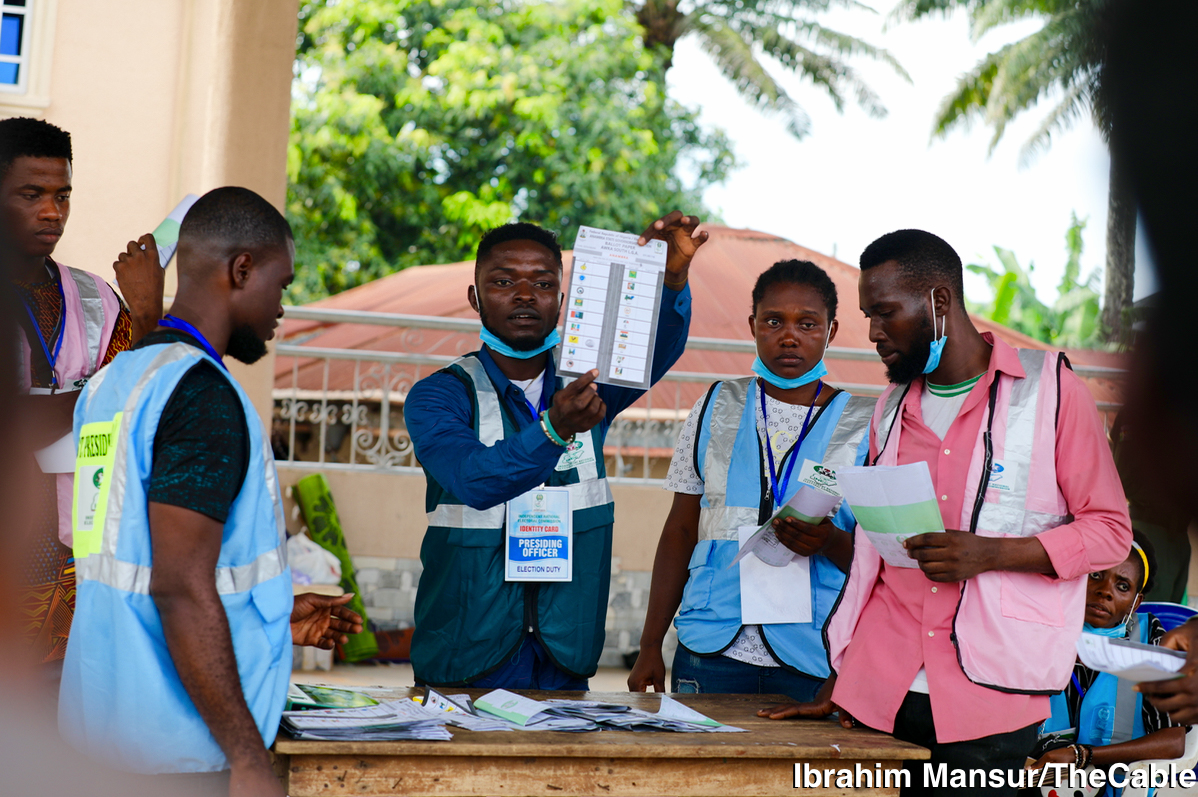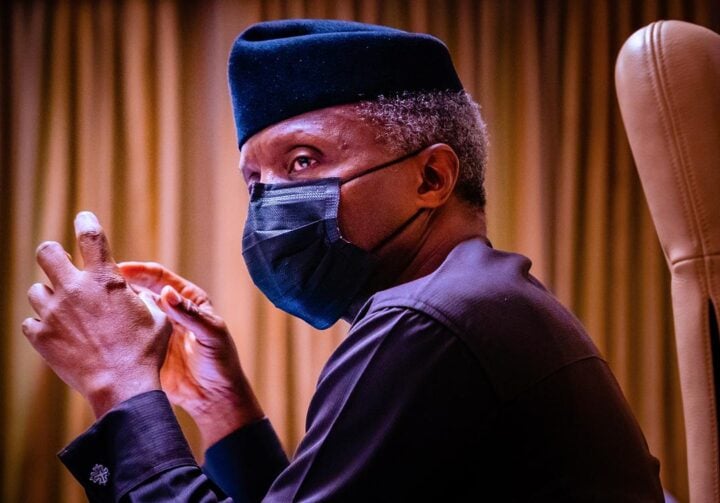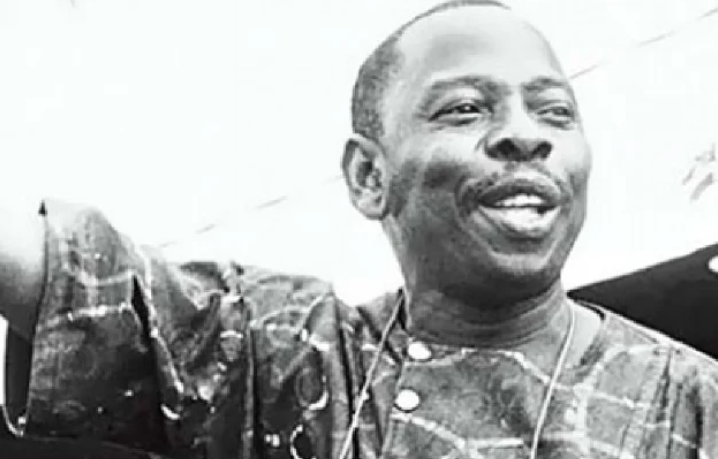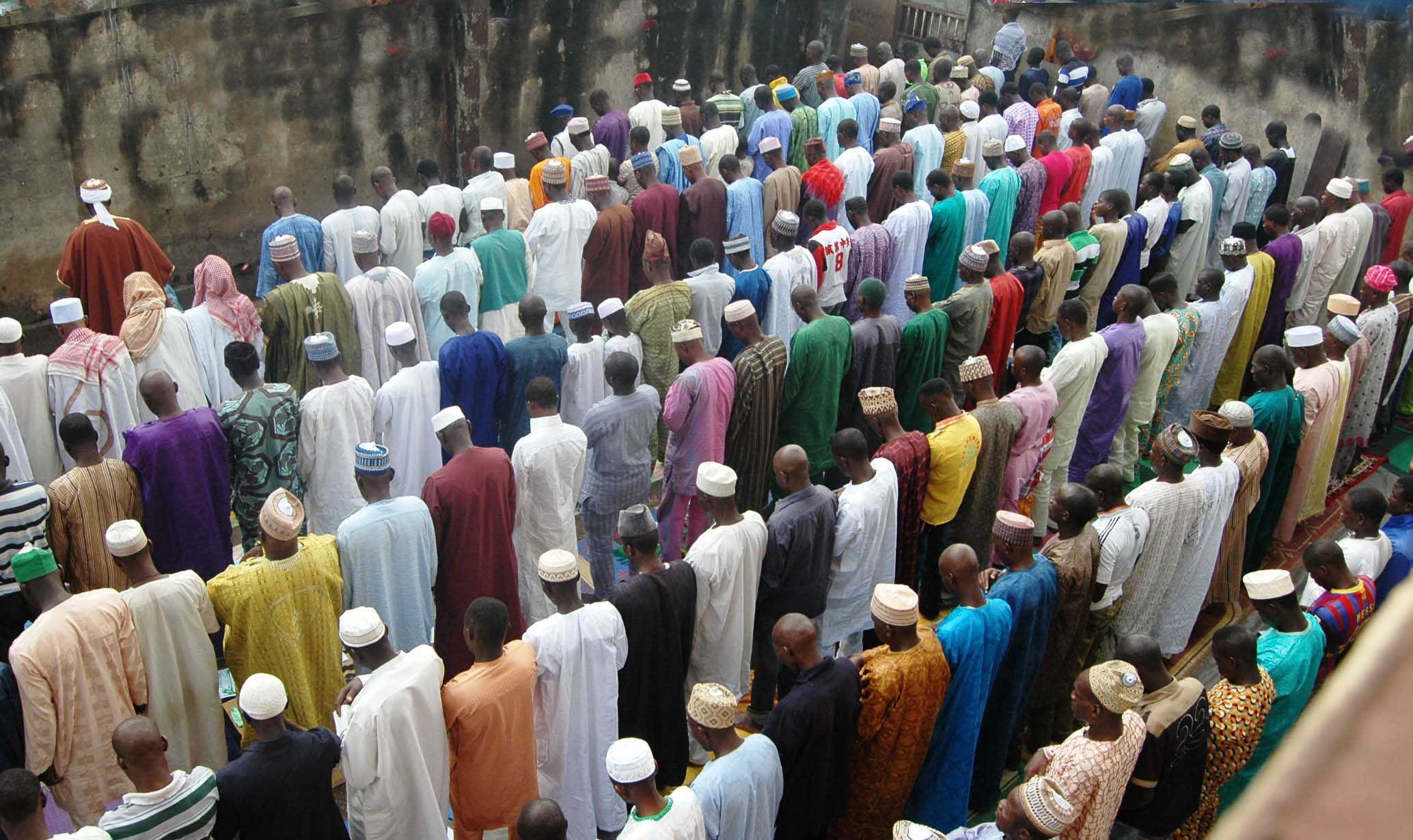The presidential system as practiced in Nigeria is seriously flawed. In itself, the system is powerful and could be an efficient way towards rapid progress in any country if the leadership is progressive, radical and visionary. Nigeria has not been lucky to have those three values in any leader at the same time. The presidential system is very powerful as evidenced in the USA. Indeed, the last five years have allowed us to see the shrouded side of the system in the well acclaimed successful American system with President Trump. The balance of power lies with the Parliament – Senate and Congress – in the USA. Therefore, if citizens want to empower a President, they have to give her a resounding majority in both houses.
The same is true in Nigeria as the Nigerian constitution equally empowers a President that wields a majority in both the House of Representatives and the Senate. Ideally, when a political party has the majority especially a two-thirds majority in both houses then on paper that President should have an easy ride in ensuring the delivery of their programmes, policies and vision. The Presidential system equally allows the use of Executive Orders to augment enabled acts of parliament, to speed things up and give the President some leeway and swift power in order to be efficient. These powers are all based on trust and are expected to be used responsibly. In Nigeria, as it is essentially in the USA, the powers of the President are replicated at state levels therefore governors have the executive authority wielded by Presidents in the respective states. It is the contribution of the Nigerian governors in the current dispensation that this piece focuses on and I will try to explain why.
Prior to 1999, the argument for the lack of success in democratic rule during the first (1960-1966) and second (1979-1983) republics have mainly been the shortness of time to learn and improve. Many have argued, convincingly, that the relative progress made by these previous democratic journeys were truncated by uninvited military misadventure in governance as both dispensations were toppled by exuberant military officers. It was clear the military had no preparations for governance, hence no business in forcefully taking over government and becoming despots.
Nevertheless, a careful examination of the application, implementation and practicalities of the Presidential systems since 1999 especially in terms of ensuring that the dividends of democracy get to the citizens will reveal that there are very few success stories to be jubilant about. There have been significant hindrances at all levels of governance in this presidential democratic experiment. It has been 21 years of continuous democratic rule since 1999 and that is long enough time to make rapid progress as a nation. There has been the fortune of one political party in charge for a continuous 16 years which is a measure of stability and perhaps citizens endorsement. Another party is now in its sixth year of governance, another indicator of relative stability. My point here is Nigerians have been patient and reasonably allowed continuity in governance. Have those entrusted with power reciprocated this trust?
Advertisement
Many Asian countries that have significantly transformed in development over the last three decades or thereabout have been able to do so with about 10 years of continuous good governance – Singapore, Malaysia, South Korea, Vietnam, UAE, etc. Many other countries elsewhere have also evidenced significant progress in development – Rwanda, Guyana, Botswana, Mauritius etc. Consequently, if it is about the time required to make progress then we have had enough time – 21 years between two political parties is more than enough to change the direction of progress in a nation. Indeed, the slow pace of development is frustrating but one recognises that a strongly divided country with a high level of poverty, greed and corruption like Nigeria must be prepared to use a different type of development strategy. It is, however, the significant retrogression of Nigeria on many fronts that is killing citizens’ morale. There are many areas where we had made decent progress hitherto (up until the 1980s) but where things now seem significantly reversed, for example, security, sports, education, health, among others.
Back to the state governors, these governors along with their state legislatures have been the most significant clog in the wheel of the democratic process. For most states, the two arms of government are a united body of willing collaborators with nearly no separation of power nor checks and balances as required under the constitution. I have read opinion pieces where this unfortunate scenario has been argued as an advantage that allows rapid progress. If states had witnessed such progress and development this would be a forgivable misdemeanour. Rather, in reality this situation has effectively ensured that citizens held the short ends of the stick.
State governors in Nigeria are very powerful. They recognise their powers and seeming invincibility and thus operate like a cult. With the creation of the Nigeria Governors’ Forum and upon entering the second phase of the forum in 2009, successive Chairmen of the forum have gone on to become a Kingmaker of some sort – Bukola Saraki, Rotimi Amaechi, and Abdulaziz Yari Abubakar. The incumbent chairman, Kayode Fayemi, is presently repositioning himself and already being touted as a presidential hopeful. His predecessors at different times, either had their names mentioned as interested in or associated with seeking the Nigerian Presidency. That chairmanship of the forum is a very pleasant position to be in. Once politicians join the circle of governors, they quickly imbibe and internalize the sacred code of conduct. The spirit of camaraderie among Nigeria governors is unparalleled. They often cooperate across party lines and the National Council of States meetings are often rancour free irrespective of the party in power at the centre. It seems clear that top of the agenda is how to share funds accruing to the national purse, perhaps a bit of banter and chit-chat about Madam and how the social life is going.
Advertisement
Mouth-watering federal allocation (2013-2019) went to Delta, Akwa Ibom, Rivers, Bayelsa, and Lagos in that order. The Internally Generated Revenue (IGR) of the states (2013-2019) is shocking, nay replace that with nothing. Lagos, Rivers, Delta and Ogun states managed to generate something decent with all, but Ogun, marginally increasing the IGR year on year. The IGR is near zero and close to deficit in some states: Yobe, Taraba, Gombe, Borno, Adamawa, Ekiti, Kebbi, and Katsina. For the rest of the states not listed, it is equally embarrassing. We should be very careful not to commend any of these states, without exemption, albeit it is very tempting to want to single out a few for commendation. It is a myth. A one-eyed man is King in the land of the blind and none of these states is pulling their weight. Those who boast of “good” IGR are mostly taking advantage of their location rather than any evidence of serious creativity in revenue generation. As I argued, it is a collaboration among a group of men enjoying power and immune from societal pressure. Their feet is not held to fire and there is no real need to pull up their socks.
The powers of these governors come from the fact that they enjoy immunity, they control sizable resources and are therefore able to control their entire state machinery meaning the State House of Assembly and the Civil Service, and to a reasonable extent even the judiciary. In nearly all the 36 states, the governor has absolute control over the local government administration and again these gentlemen seem all agreed about this as good practice. They quickly learn how much power they wield within weeks of assumption. This is why they all seek a second term and I cannot remember one who voluntarily decided not to seek a second term. They only ever lose a second term if their party loses the state at election or if they lose their party’s ticket. Losing the party’s ticket is rarer until the recent Akinwunmi Ambode episode in Lagos State, but then Lagos is different. It is an open secret who runs Lagos.
What is more important in my discourse, but often ignored, is that these lazy and mostly looting governors are often quickly forgotten after their term in office such that no matter how poorly they have governed their states they usually get away with it. How many can recall the former governors in many of their neighbouring states? Some would even struggle to name the governor of their own state 12 years ago. Imagine a thieving politician placed in charge of so much money, coupled with immunity backed by the law. Imagine how effectively they use smart and ready lawyers who can delay court cases for decades after leaving office just in case they occasionally forget to tightly close up a particular loot. Imagine that EFCC can be accused of all sorts including being a “dog” of sitting governments against the opposition. Think about all the options they have and which they have cleverly used cleaning up their dodgy image through social media and the corrupt press. Imagine all these backed by fat bank accounts, stolen loots and investments. The chances of a governor going down is infinitesimal.
Public attention regarding the responsibility for good governance is often on the federal government and discussions are often directed and limited to that level of government. We know Nigeria has not witnessed any impressive governance at that level since independence but that is not the interest of this piece. There are two related issues concerning the role of states that could require serious interrogation. The first is the fact that the states have usurped the constitutional responsibilities of local governments and this is no news. Many governors never conduct elections at that level and many Nigerians do not really recognise the value of governance at that level. The second is that the main balancing control of power at the state level are the states houses of assembly, however, in nearly all the states those houses have become extensions of the state executives – taking instructions and complying with directives as long as monies change hands and the legislators are kept happy. Both issues are subjects worthy of a separate deliberation beyond the interest of this piece. Let me turn attention to a few specific points to ponder regarding governance at the state level.
Advertisement
Let us take a recent example from the revenue shared in June 2020 which is in public domain. A total of N547.31 billion revenue was shared of which the Federal Government received N219.80 billion (40.2%). States received a total of N152.47 billion and Local Governments received N114.09 billion. The oil-producing states shared an additional 13% derivation fund totalling N37.02 billion. To make this easy without all the technical details and complications, the 36 state governments had access to a total of N303.58 billion. Delta State received the biggest share of N14.3 billion, Osun State received the lowest share of N2.24 billion. To what extent have these huge amounts gone to development projects as opposed to enriching individuals? There is a need for a revival that would trigger national interest in states funds. Citizens need to become more interested in their state of residence and states of origin whichever is more important to them or both.
There are several Africa countries the size of many Nigeria’s states. These small African economies and their relative success at self governance include: Botswana, Malawi, Rwanda, Burundi, Togo, Benin, Niger, Swaziland, Gambia, Mauritius, Lesotho, Liberia, São Tomé and Príncipe, Guinea, Chad, Seychelles, and Namibia, among others. Many of these countries have no natural resources – zero! Yet they are relatively successful and many continue to develop economically with visible infrastructural growth. Why has it never been a vision of the governors in Nigeria to reposition their states to such a level of financial independence? Not a single governor is exempt since 1999. What is the point of being CEO in a company where all you do monthly is to wait for some lump sum to be passed onto you (in this case from Abuja) and you thereafter pay workers salaries and do a few projects with whatever is left for a period of 4 or 8 years? Nigerians need to rededicate efforts at asking these governors challenging questions.
Perhaps only Lagos state, and potentially Rivers state, has any substantial IGR which if fully harnessed might make self-survival of the states possible, nearly all the other states survive on federal allocation. The 2021 budget of Lagos State which is about $3.05 billion (US dollars) is more than the budget of many African countries, but seriously even Lagos can do so much more and significantly better. I cannot name any governorship aspirant who has campaigned for office of the back of developing a self-reliant state. Governors are sworn in, stay their full term, sometimes get a second term and proudly announce they never owed salaries as a major achievement. How does paying salaries become an objective and an end in itself? Many of these governors are known champions of restructuring. What does that mean for them? Achieving viability for a state over an eight-year period without recourse to federal allocation is what should qualify a governor to aspire for the Presidency. Such an individual will be able to focus on enhancing the pot of national funds rather than merely sharing the present fund.
If we turn to policy issues, one also struggles to find states with substantial or impressive policy on education or health or an impressive record on infrastructural development. Lagos has been building a mass transit train for about 16 years! Kaduna state and lately Borno state started making some noises recently regarding progress in education. Similar noises made in Osun state a few years ago have taken the back burner. It is uncertain how sustainable these noises are. Primary and secondary education are both at their lowest ebb, in most states. Governance for most of the governors is about paying salaries with very little or no development visible at the end of their tenure.
Advertisement
Most of the states are neither economically viable nor sustainable and this is not because of their size or lack of resources. It is largely due to the lack of will or incompetence on the part of those elected to direct the affairs of those states as well as the absence of citizen’s challenge for due diligence, as well as lack of a sustained demand for good and credible government at the state level. The idea of state creation as a means of bringing governance closer to the people is completely debunked. The governors have effectively been diversionary, redirecting all the problems and the blames to Abuja. At the state level, they barely get any serious challenge about their own service delivery to the people.
There is a need for an urgent national mobilisation of the people to challenge and engage governors and put a stricter focus on states in a way that it would no longer be viable to ignore the people. Fighting corruption should never always be about how to control it, it should always be about its prevention. Ensuring good governance should also never be only about the government at the centre alone, it should happen at all layers of governance. How do citizens block the loopholes of pilfering and looting of the commonwealth and resources that belong to all? If there is no reward for incompetence in public office bad people would no longer be interested in these offices. Nigerians need to stop mollycoddling state governors!
Advertisement
Gbadamosi can be reached through [email protected]
Advertisement
Views expressed by contributors are strictly personal and not of TheCable.

